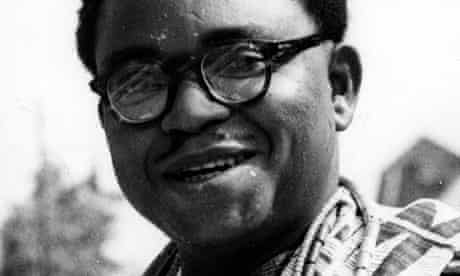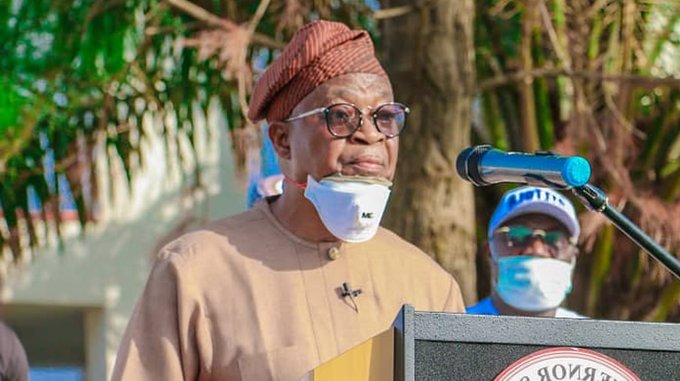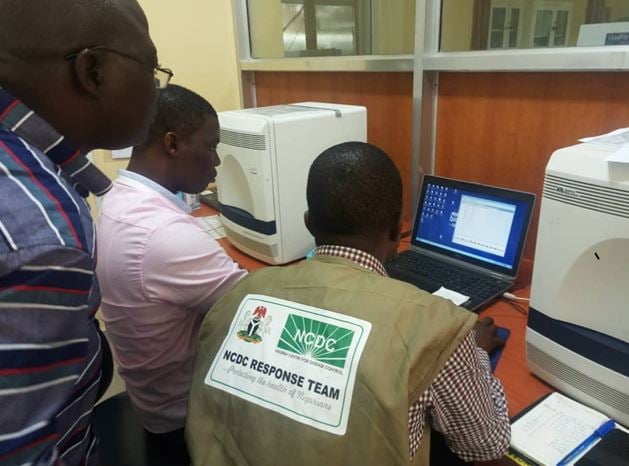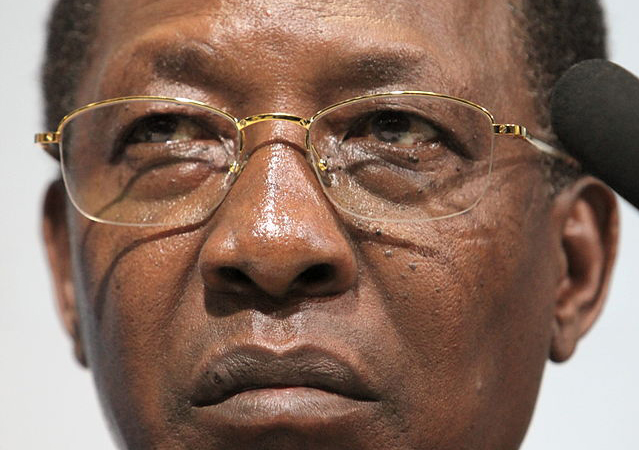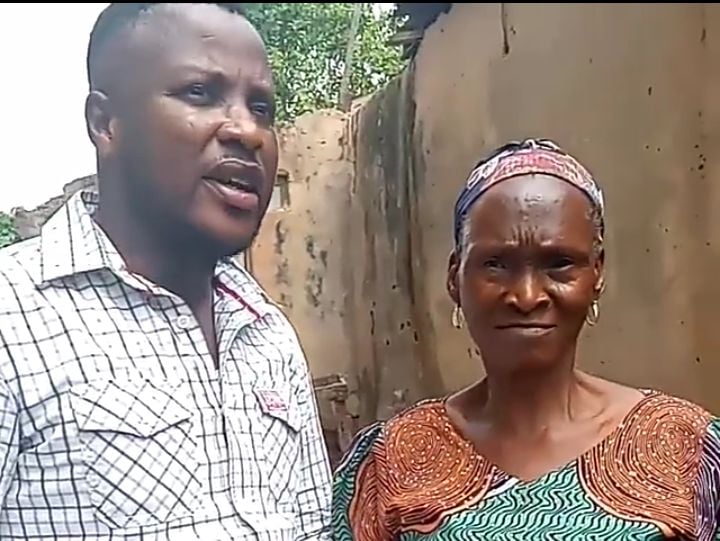On Thursday, President Muhammadu Buhari granted pardon to some convicted persons including Anthony Enahoro, one of Nigeria’s foremost nationalists who died in 2010.
Rauf Aregbesola, minister of interior, who announced the presidential pardon, did not reveal the particular offence Enahoro was relieved of, but there are indications it might have been granted in error, according to checks by TheCable.
Various attempts made by TheCable to clarify the reason behind the presidential pardon from officials of the current administration were not successful.
Was it over his convictions by the colonial government or the treason imprisonment by the Tafawa Balewa administration?
Advertisement
Both Lai Mohammed, minister of information, and Aregbesola did not respond to enquiries on the matter.
Enahoro, who lived between July 22, 1923 and December 15, 2010, spent most of his active career years in the media, politics, civil service and the pro-democracy movement.
Popularly called “Enahoro the Jailbird” for his frequent incarceration, he was convicted on four different occasions in his lifetime: three times under colonial rule and once in the post-independent Nigeria.
Advertisement
JAILED THRICE FOR SEDITION — BUT WAS HE PARDONED?
As a journalist and editor, the late Enahoro had it rough with the British colonial government, ending in jail on three different occasions — all on charges of sedition.
His first time in jail was in 1946. He had published an exposé on British colonial misconduct in the Daily Comet. He was arrested and upon conviction, jailed for nine months.
Barely a year after, he was again jailed having been prosecuted for an address in 1947 in which he denounced police violence and discrimination against Nigerian troops serving in the British army.
Advertisement
Later in 1949, Enahoro, now a regular customer for the colonial masters, was arrested and jailed for sedition after his trial alongside other members of Nnamdi Azikiwe’s Zikist movement during a “revolutionary lecture.”
He had chaired the lecture titled “A call for revolution”, and in which Osita Agwuna, a leading Zikist, called for a revolutionary struggle against British rule and appealed for “positive action”, according to detailed accounts of what transpired at the time.
While there are no available records to show he was pardoned at the time, in 1951, he joined active politics shortly after, registering with the Action Group and elected into the federal house of reps where he was instrumental to Nigeria’s independence, having moved the first motion for self-government in March 1953.
If his colonial-era convictions were not fully pardoned, they remain in his record no matter his other attainments in life.
Advertisement
JAILED FOR TREASON — AND PARDONED
In 1962, Enahoro and other members of the Action Group (AG) were detained and accused of treason against the federal government. He escaped and fled to the UK in September of that year, where he sought asylum.
Advertisement
The Balewa government mounted pressure on the Labour Party-controlled British Parliament to extradite Enahoro by invoking the 1881 Fugitive Offenders Act and after a prolonged debate on the matter, Enahoro’s fate returned to the Nigerian government in March 1963 when he was extradited and upon trial for treasonable felony, was convicted and jailed for 15 years which was later reduced on appeal.
Then came his freedom in 1966, which was just after the second military coup. Yakubu Gowon, then military head of state, granted full pardon to Enahoro alongside others jailed for treason, including Obafemi Awolowo, the AG leader, and Lateef Jakande, who later became governor of Lagos.
Advertisement
TheCable obtained the government gazette dated August 12, 1966 in which Enahoro and six other convicts were pardoned.
The gazette with no. 81 of vol. 53 partly read: “Whereas Chief Anthony Eronsele Enahoro, having been duly convicted of the offences of treasonable felony, conspiracy to commit a felony and conspiracy to effect an unlawful purpose, and sentenced to imprisonment for seven, three and one years respectively on all three counts:
Advertisement
“And whereas the said Chief Anthony Eronsele Enahoro, having served a portion of the sentence originally imposed on him in September 1963:
“And whereas the Supreme Military Council after reviewing his case, is pleased to remit the sentence and to grant a full a pardon:
“Now therefore, in exercise of the powers conferred by section 101 (1) of the Constitution of the Republic and of all other powers enabling it in that behalf, the Supreme Military Council do hereby remit the unexpired portion of the sentence imposed on the aforesaid Chief Anthony Eronsele Enahoro and grant him a fall pardon.
“Given under my hand and the Public Seal of the Republic of Nigeria at Lagos this 2nd day of August, one thousand nine hundred and sixty-six.”
HIS FIFTH TRIAL — AND WITHDRAWAL OF CHARGES
Enahoro, who led the National Democratic Coalition (NADECO) to fight for the restoration of the annulled 1993 presidential election which produced MKO Abiola as the winner, was charged to court again in 1995.
The Sani Abacha regime tried him in absentia for treason, alongside other activists including Nobel laureate Wole Soyinka and Olu Falae, statesman.
After the death of Abacha in 1998, the Abdulsalami Abubakar regime withdrew the charges against them. Femi Falana, who was the defence counsel, confirmed this to TheCable.
This was an account of what transpired then: “On 7 September 1998, Abubakar announced the dropping of all charges against those persons in exile and invited them to return home …. Nigerian police announced on 18 September 1998 that treason charges had been withdrawn against Wole Soyinka and 14 other persons (AFP 18 Sept. 1998).”
UNPARDONABLE MISTAKES?
Although the 1999 constitution empowers the president to pardon convicts, that privilege comes with certain conditions which it seems were not followed by Buhari.
While section 175(1) states that “the President may – (a) grant any person concerned with or convicted of any offence created by an Act of the National Assembly a pardon, either free or subject to lawful conditions”, the subsection 2 states “the powers of the President under subsection (1) of this section shall be exercised by him after consultation with the Council of State.”
The council of state is yet to meet on the matter as stipulated in the constitution.

